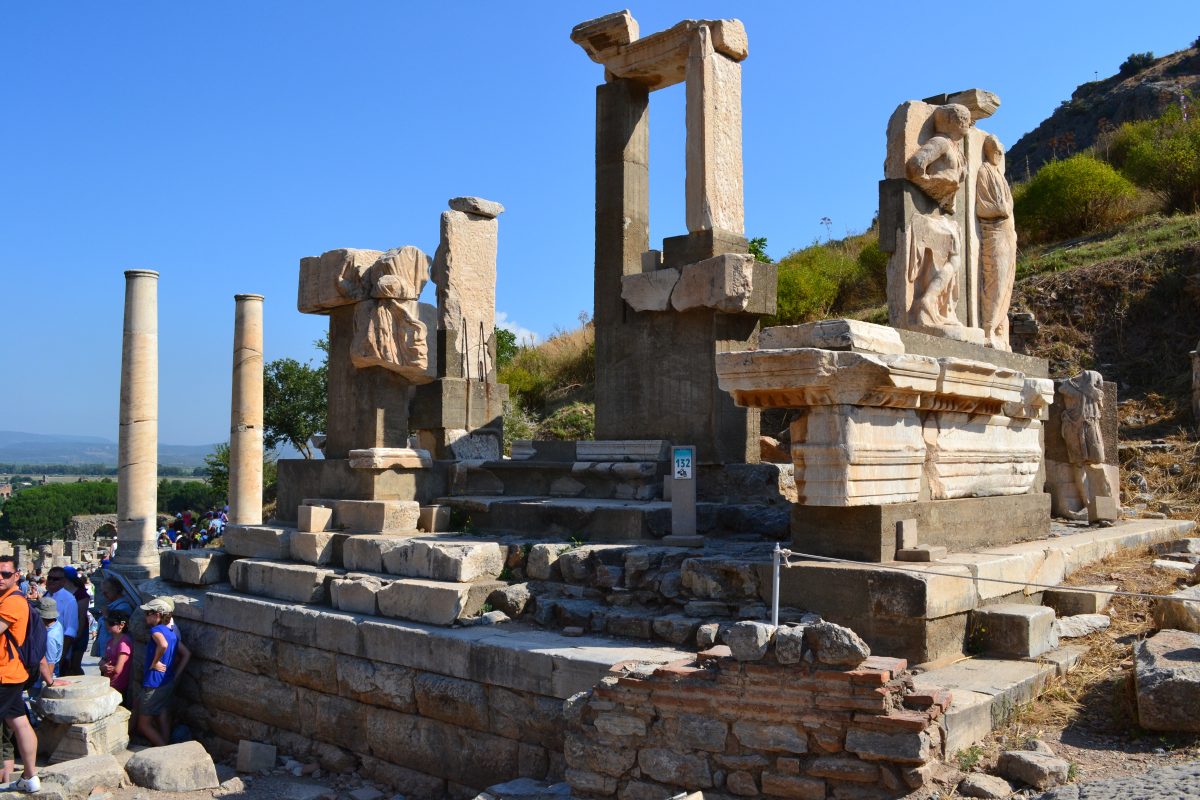Background Passages: 2 Samuel 9:1-7 and Galatians 5:22-23, 25
Small acts of kindness can make a huge impact. A smile, a thoughtful word, a warm muffin found on a desk, or a hug can make the sun shine brighter and the day seem better. That’s the premise behind the idea of Random Acts of Kindness.
Started in Denver, Colorado, in 1995, the idea behind Random Acts is to somehow make the world a better place by making kindness a part of our everyday lives. It’s a nice sentiment. The world needs to be a kinder, gentler place.
As one who has received these random gifts of kindness throughout my life, I understand the impact. To limit kindness to a blueberry muffin, however, diminishes its impact.
Those who study words tell us that “kindness” has its origin in the Middle Ages. In the language of that period “kind” and “kin” were the same. It seems to suggest that to demonstrate kindness was to treat someone like kin…like family. That presents the term in ways that can hardly be random.
As often happens, the idea of kindness has bounced around my brain for a couple of weeks. I was recently asked by my church to share a thought on the character of David at our Wednesday night Bible study. In the course of preparation, I rediscovered the story of David’s interaction with Jonathan’s disabled son, Mephibosheth. The story reveals much more about kindness than any random act.
For years the schizophrenic and paranoid King Saul chased after David to eliminate the one whom God had chosen to take his place. He saw David as a threat. Despite numerous opportunities to do so, David could not raise a hand against Saul or his family because of the deep bond of love and friendship David developed through the years with Saul’s son, Jonathan.
In a particularly difficult time in David’s life, Jonathan went behind his father’s back and told David of Saul’s plan to kill him. David pledged to always look after the family of Saul and Jonathan. Years later, Saul and Jonathan are killed in battle. It now appears that all of Saul’s male descendants have died.
Now king of Israel, David felt the emptiness in his life without Jonathan. Hear David’s heartfelt plea in 2 Samuel 9:1.
“David asked, ‘Is there anyone still left of the house of Saul to whom I may show the kindness of God?’”
“The kindness of God.”
The choice of those words struck me. Why not just, “Is there anyone left of the house of Saul to whom I may show kindness.” David’s kindness. A random act of kindness. Instead, the phrase reads, “kindness of God.”
Let’s go back to the definition. In her book The Kindness of God, Catholic theologian Janet Soskice made the link between “kind” and “kin.” She wrote, “To say that Christ is ’our kind Lord’ is not to say that Christ is tender or gentle, although that may be implied, but to say that he is kin…our kind.”
It’s an interesting twist if indeed to be kind meant to be kin. The kindness of God within this context means that God became my kin…my family…my father. Through Jesus’ sacrifice and my faith commitment, I become part of the family of God.
David’s desire to show the kindness of God indicates his wish to find someone whom he could love and treat as family. As the story unfolds in 2 Samuel 9, David finds a sole survivor…Mephibosheth, a young disabled boy, hiding in fright in a remote village on the other side of the Jordan River.
David had the authority, power and historical permission as the victorious king to put Mephibosheth to death. He didn’t do that. When he found Mephibosheth he called him to Jerusalem, not to enslave him or kill him, but to extend God’s kindness to him.
“Do not be afraid for I will surely show you kindness for the sake of your father Jonathan. I will restore to you all the land that belonged to your grandfather Saul, and you will always eat at my table.” (2 Samuel 9:7)
David did not extend a token gesture. His offer was extravagant. He gave Mephibosheth all that once belong to Saul and a place in his household. What an extreme act of kindness and grace!
What he did demonstrated love toward someone who did not deserve it, could never earn it and would never be able to repay it. His kindness or kin-ness made Mephibosheth a part of David’s family…someone invited to sit at the king’s table.
If this idea of kin-ness is at the heart of kindness, then it seems to require us to see others in the image of God, worthy of our honest connection, regardless of life’s circumstance. It seems the ultimate act of kindness and kin-ness is to invite people to be a part of God’s family…to welcome them to the table.
Kindness, then, is more than a random act. It is that thread of unfailing love that ought to be the lifestyle of any child of God seeking to live as the image of God in a cruel world.
The amazing thing is that God, through his indwelling Spirit, gives us the capacity for exactly that kind of godly kindness. Paul points out that the life of a Christian ought to reflect the character and nature of God as revealed by his Spirit.
“But the fruit of the spirit is love, joy, peace, patience, kindness, goodness, faithfulness, gentleness and self-control…Since we live by the Spirit, let us keep in step with the Spirit.” (Galatians 5:22-23, 25)
The thing about the fruit of the spirit is that, unlike the gifts of the spirit which are given to each of us uniquely and individually, God doesn’t give us different fruit based on our personalities. He does not allow us to pick and choose which fruit we get to live out. He expects us to live out each one…each day…in every circumstance of life…to live by the spirit and keep step with the spirit.
Sadly, we live within a cultural pandemic of condemnation and judgment, characterized by a lack of kindness. Those who live a life of kindness, of kinship, look every day for the next Mephibosheth. They look for someone to show “the kindness of God,” not just as some random act, but as an intentional choice to let someone sit at your table. To build relationships. Meaningful connections. To create opportunities to show the love of Christ in the things we think, say and do for them. To be kind, to be kin, is to love as Christ loved.
Don’t you see, God is kind because he cannot be otherwise. It is his nature. When we give our lives to Jesus and open our hearts to God’s spirit, kindness becomes a part of our new nature. It is the make-up of that “new creation” that Paul talks about in 2 Corinthians 5:17, a reflection of God in us.
The English poet Roberts Burns said, “It is the heart benevolent and kind that most resembles God.” David’s innate and God-inspired kindness was one of the reasons he was called a “man after God’s own heart,” God’s choice to be Israel’s king. His kindness made him a great ruler.
According to Mark Twain, “Kindness is a language which the deaf can hear and the blind can see.” I suspect it is a language that will make even those who find it hard to walk in the presence of the King leap for joy.
What about you? Is there anyone out there to whom you can show the kindness of God? If you keep asking the question, God will bring you one Mephibosheth after another who needs your kindness…your kin-ness.
God simply asks that when we find our Mephibosheths, we invite them to eat at our table.


